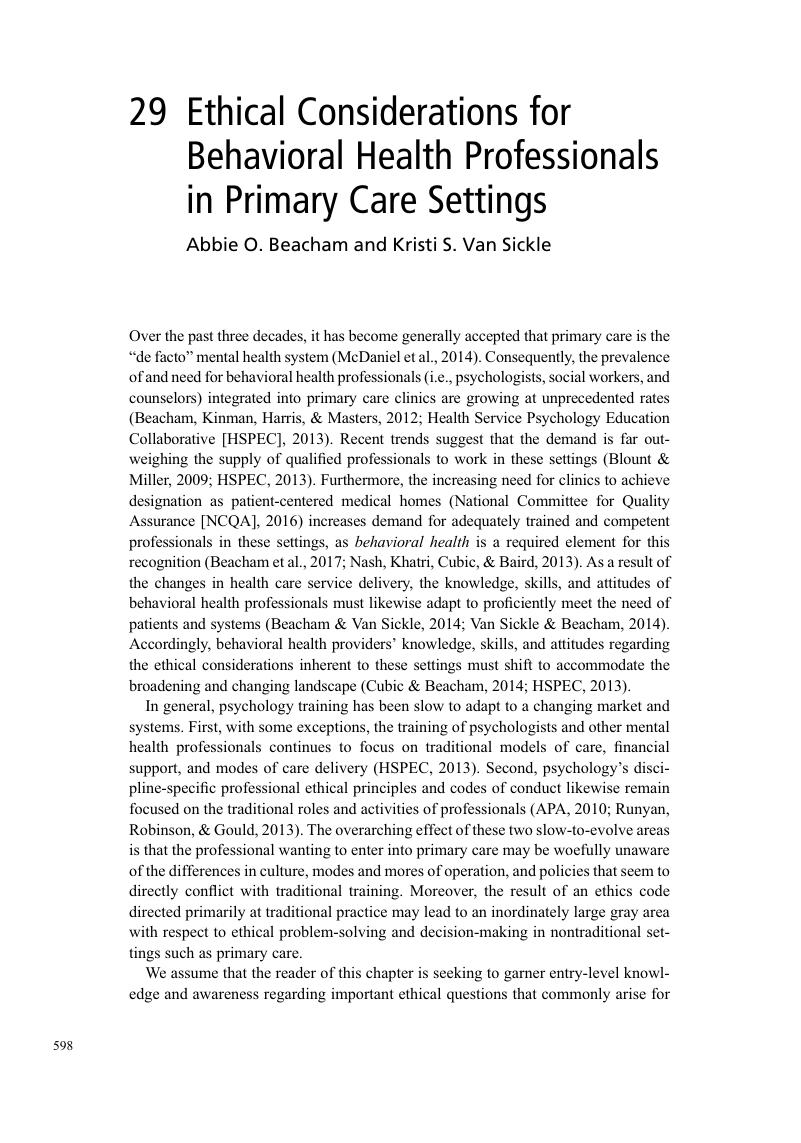Book contents
- The Cambridge Handbook of Applied Psychological Ethics
- The Cambridge Handbook of Applied Psychological Ethics
- Copyright page
- Dedication
- Contents
- Contributors
- Preface
- Acknowledgments
- Section I Ethical Issues in Specific Settings and Challenging Populations
- Section II Ethical Issues in Working with Diverse Populations
- Section III Legal, Research, and Organizational Issues
- Section IV Emerging Ethical Issues in Professional Practice and Next Steps
- 28 Genetic Testing and Ethical Considerations
- 29 Ethical Considerations for Behavioral Health Professionals in Primary Care Settings
- 30 Therapy with Children and Adolescents in an Era of Social Media and Instant Electronic Communication
- 31 Ethics and Ethical Decision-Making in Coaching
- 32 Ethical Issues in Prevention
- 33 Fostering Ethical Mental Health Practice across Diverse Settings and Populations
- Index
- References
29 - Ethical Considerations for Behavioral Health Professionals in Primary Care Settings
from Section IV - Emerging Ethical Issues in Professional Practice and Next Steps
Published online by Cambridge University Press: 14 February 2018
- The Cambridge Handbook of Applied Psychological Ethics
- The Cambridge Handbook of Applied Psychological Ethics
- Copyright page
- Dedication
- Contents
- Contributors
- Preface
- Acknowledgments
- Section I Ethical Issues in Specific Settings and Challenging Populations
- Section II Ethical Issues in Working with Diverse Populations
- Section III Legal, Research, and Organizational Issues
- Section IV Emerging Ethical Issues in Professional Practice and Next Steps
- 28 Genetic Testing and Ethical Considerations
- 29 Ethical Considerations for Behavioral Health Professionals in Primary Care Settings
- 30 Therapy with Children and Adolescents in an Era of Social Media and Instant Electronic Communication
- 31 Ethics and Ethical Decision-Making in Coaching
- 32 Ethical Issues in Prevention
- 33 Fostering Ethical Mental Health Practice across Diverse Settings and Populations
- Index
- References
Summary

- Type
- Chapter
- Information
- The Cambridge Handbook of Applied Psychological Ethics , pp. 598 - 615Publisher: Cambridge University PressPrint publication year: 2018



